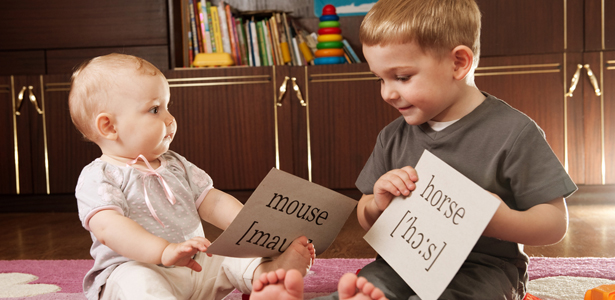Does Altruism Actually Exist?
Some have argued that all acts of kindness are made with an ulterior motive, but new research suggests that there is a link between fairness and altruism, and it develops very early
Some have argued that all acts of kindness are made with an ulterior motive, but new research suggests that there is a link between fairness and altruism, and it develops very early
The concept of altruism has been around for a long time, and for almost as long researchers have argued over the meaning of it. Some have suggested that true altruism doesn't even exist. After all, helping out someone else generally involves some cost or risk to you: either you're expending valuable energy or you're putting yourself in danger, all for the well being of another. Evolutionarily, this doesn't make a whole lot of sense, since we're all out to preserve ourselves -- and our genes. There must be something else going on.
Some have suggested that acts of kindness may have an ulterior motive, as in "I'll help you out now, but you'd better do the same for me later." If that's the case, then altruism wouldn't be all that altruistic. One instance where it might make sense is among relatives. Even here, though, since you're technically helping out your own genes, this too could have a slightly selfish angle.
The relationship between altruism and equity has interested the scientific community. Would we be altruistic if we didn't have a sense of fairness? Is the one a prerequisite for the other? And when do these traits develop in a youngster? Researchers have begun exploring the relationship, and have recently demonstrated that altruism and fairness appear to develop, perhaps simultaneously, from an incredibly early age. Whether they're innate or learned is still up for debate.
In a new study, researchers had 15-month old babies watch movies of a person distributing crackers or milk to two others, either evenly or unevenly. Babies look at things longer when they're surprised, so measuring looking time can be used to gain insight into what babies expect to happen. In the study, the infants looked longer when the person in the video distributed the foods unevenly, suggesting surprise, and perhaps even an early perception of fairness.
But the team also say they established a link between fairness and altruism. In a second part of the experiment, the babies chose between two toys, and were then asked to share one of the toys with an experimenter. About a third of the babies were "selfish sharers": they shared the toy they hadn't chosen. Another third were "altruistic sharers": they shared their chosen toy. (The rest chose not to share. They may have been inhibited by the unfamiliarity of the experimenter, or maybe they just weren't that into sharing.)
What's interesting about the second half of the study was that by and large it was the babies who had previously been surprised by the unfair cracker and milk distribution who tended to share the preferred toy with the experimenter (the altruistic sharers). The babies who shared the rejected toy hadn't expressed much surprise over unequal distribution. This led the researchers to suggest that there's a fundamental link between altruism and a sense of equity.
An alternative interpretation for babies' perception of fairness could be that babies merely show surprise when physical things are divided unevenly, the authors suggest. For example, that they could just be taken aback by "violations of non-moral conventions," naturally assuming "that goods are usually divided into equal amounts." But, the authors argue, the fact that the second part of the study connected the "altruistic" behaviors to the perception of unevenness speaks to the fact that babies "evaluate events along morally relevant dimensions." This led the researchers to conclude that social and moral development occur in tandem.
While it's interesting that altruism and fairness appear to be interconnected traits, particularly at such an early age, the research doesn't completely get to the bottom of the nature of altruism. One could argue that perceiving fairness is simply a prerequisite for helpful acts, even ulteriorly motivated ones: after all, there's something "fair" about the notion of a later payback.
Still, the research suggests that, whatever the motive, infants have an early sense of both traits, which are preverbal. They appear to develop their social behaviors just by watching others, which the authors suggest could help adults understand more about how to foster that development in kids from a young age.
In fact, argue the authors, it's even possible that babies are more likely to be altruistic than older people, because they think less about it. Study author Jessica Sommerville says that "some researchers have suggested that young children and infants may be more blindly altruistic than older children and adults, because they don't yet possess the ability to be discerning."
So maybe we should take a lesson from the youngsters who share their toys with random people without a second thought. Maybe thinking about it less is the key to kindness.
Image: Petro Fateka/Shutterstock.
